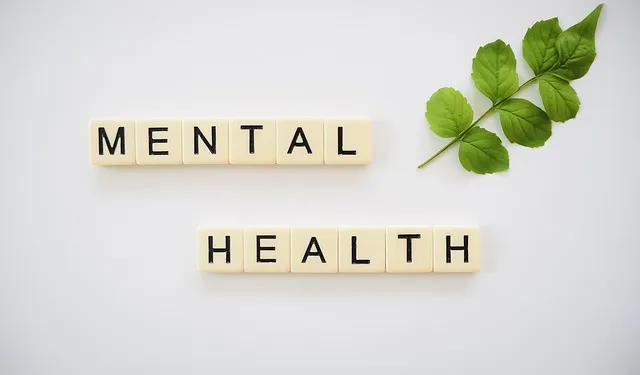The Centennial Kaiser Permanente mental health center, owned and operated by a team of experts, addresses social challenges associated with mental health conditions through comprehensive social skills training. They utilize evidence-based practices like CBT and mindfulness to help patients manage anxiety, depression, and low self-esteem. This holistic approach prioritizes emotional regulation, enabling individuals to confidently navigate social interactions, build meaningful connections, and achieve long-term success within the community. By combining relaxation techniques with tailored communication skills, the center empowers clients to maintain emotional equilibrium and enhance their overall mental well-being.
Social skills training is a powerful tool in the recovery journey for individuals managing mental health conditions. At the Centennial Kaiser Permanente Mental Health Center, we recognize the profound impact of social connection and interaction on overall well-being. This article explores why social skills development is essential for mental health restoration, delving into specific challenges like social anxiety and offering tailored strategies for various disorders. We provide practical tips for implementing and maintaining these connections, inspired by our center’s expertise.
- Understanding the Importance of Social Skills for Mental Health Recovery at the Centennial Kaiser Permanente Mental Health Center by Owner
- Identifying Challenges: Common Social Anxiety and Interaction Barriers in Individuals with Mental Health Conditions
- Strategies for Effective Social Skills Training Tailored to Different Mental Health Disorders
- Implementing and Maintaining Social Connection: Tips for Continued Growth and Well-being
Understanding the Importance of Social Skills for Mental Health Recovery at the Centennial Kaiser Permanente Mental Health Center by Owner

At the Centennial Kaiser Permanente Mental Health Center, owned and operated by a dedicated team of experts, we recognize that social skills play an integral role in the recovery process for individuals navigating mental health conditions. Often overlooked yet profoundly impactful, these skills are essential tools for emotional healing processes. Our center understands that effective communication, empathy, and interpersonal interactions can significantly influence a patient’s overall well-being.
By incorporating comprehensive social skills training into our therapeutic approach, we empower patients with the ability to navigate social situations with confidence. This strategy is particularly vital for managing symptoms of anxiety and depression, fostering meaningful connections, and enhancing overall mental resilience. Moreover, our owner-operated center takes a holistic view, considering emotional regulation as a cornerstone in risk management planning for mental health professionals. We believe that equipping individuals with robust social skills contributes to their long-term success and independence in the community.
Identifying Challenges: Common Social Anxiety and Interaction Barriers in Individuals with Mental Health Conditions

Many individuals with mental health conditions face significant challenges when it comes to social interactions due to symptoms such as anxiety, depression, or low self-esteem. The Centennial Kaiser Permanente mental health center by owner recognizes that these barriers can isolate people and hinder their ability to maintain relationships and participate in social activities, which are essential for overall well-being. Common anxieties include fear of judgment, difficulty initiating conversations, and a preference for solitary activities, often stemming from past traumatic experiences or negative self-perception.
For instance, someone struggling with depression might find it hard to muster the energy for social gatherings, while an individual with social anxiety disorder may experience overwhelming panic in social situations, leading them to avoid interactions altogether. At the Centennial Kaiser Permanente center, therapists employ various techniques like cognitive behavioral therapy (CBT) and mindfulness practices to help clients manage these emotions, build confidence, and develop effective coping strategies. Additionally, promoting emotional well-being through self-care routine development is a key focus, empowering individuals to take proactive steps towards depression prevention and overall mental health improvement.
Strategies for Effective Social Skills Training Tailored to Different Mental Health Disorders

Social skills training is a powerful tool for individuals navigating mental health conditions, offering tailored strategies to enhance their interactions and overall well-being. At the Centennial Kaiser Permanente mental health center by owner, experts emphasize the importance of personalized approaches, recognizing that different disorders present unique challenges and strengths. For instance, cognitive behavioral therapy (CBT) techniques are effective in teaching individuals with anxiety disorders how to recognize and challenge negative thought patterns during social interactions, fostering more confident exchanges.
Conversely, workshops focused on stress management and mood regulation benefit those struggling with depression or bipolar disorder. These sessions teach mindfulness practices, emotional coping mechanisms, and communication skills tailored to regulate intense emotions. The Stress Management Workshops Organization, for example, promotes a holistic approach that combines relaxation techniques with social skills training, allowing participants to navigate social settings while managing stress and maintaining a sense of equilibrium.
Implementing and Maintaining Social Connection: Tips for Continued Growth and Well-being

At the Centennial Kaiser Permanente mental health center by owner, we understand that fostering social connections is a vital component of holistic healing and well-being. Implementing and maintaining these relationships requires consistent effort and practice, especially for those navigating mental health conditions. Regularly engaging in self-awareness exercises can help individuals recognize their emotional triggers and better manage interactions with others.
Communication strategies play a crucial role in building and nurturing social connections. Encouraging open and honest dialogue, actively listening to others, and practicing empathy are key techniques that promote understanding and strengthen interpersonal relationships. By integrating these practices into daily life, individuals can experience enhanced mental health awareness and improved overall well-being.
Social skills training plays a pivotal role in the recovery process at the Centennial Kaiser Permanente Mental Health Center, as recognized by its dedicated owner. By addressing common challenges such as social anxiety and interaction barriers, tailored strategies can empower individuals with mental health conditions to navigate social situations more confidently. Implementing these skills fosters meaningful connections, enhances well-being, and supports long-term mental health recovery. For continued growth, adopting practical tips for maintaining social connections is essential, ensuring individuals can thrive in a supportive network.



